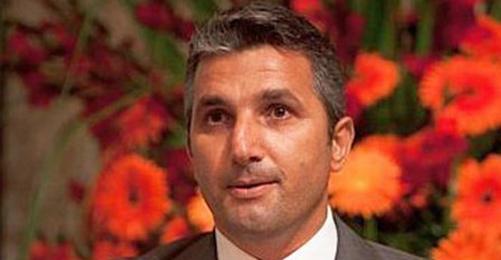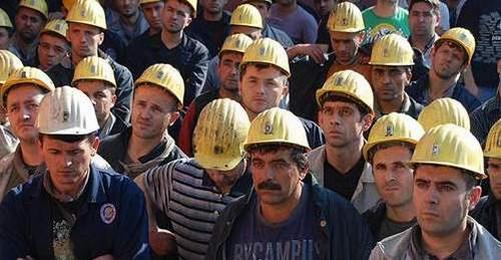The Confederation of Turkish Workers’ Trade Unions (TÜRK-IS) has released a list of changes in the draft law on Social Security and General Health Insurance which the government agreed to after negotiating with the Labour Platform (LP).
Minister of Labour Faruk Celik is expected to announce the changes in parliament today (27 March).
Retirement age and contributions
The age for retirement remains at 65 for women and men. However, the LP is still insisting on 58 for women and 60 for men.
In order to receive a pension, people have to pay social security contributions for a designated number of days. The government’s initial draft specified 9,000 days, while the LP had called for 7,000. Finally, 7,200 days were agreed on.
The government has decided to revise the “personal service rise”, which is also known as a “wear and tear” rise.
Death and disability
The government has agreed to pay a wage to the relatives of a deceased person if that person has worked for five years and has paid contributions for at least 900 days. In the case of disability, someone who has paid contributions for five years is entitled to a wage if they are needy. Otherwise, they have had to have worked 10 years and paid contributions for at least 1,800 days.
Pensions
The government has agreed to calculate pensions as follows: for employees who are still working, the pension coefficient is calculated from 3 percent of each 360 days for the first 10 years, and then from 2 percent in the following years. For people who have just started work, the pension coefficient is based on 2 percent of each 360 days worked.
Slights increase in budget share for welfare
The government has agreed to raise the share of the budget which the welfare system receives from 25 percent to 30. The LP had called for a consideration of the speed of development when calculating the budget share.
Work accidents and work-related illnesses
For those having a work accident or a work-related illness which rendered them unable to work the government had foreseen a wage set at at least 85 percent of their income. Should an insured peorsn die of a work accident or a work-related illness, then the wage paid to one entitled person would be 80 percent of the income, and 90 if there were two entitled persons.
The LP had demanded that those with a disability of 25 percent or more due to work accidents or work-related illnesses be given an income which reflected how many people the insured person was looking after and that a minimum income be specified.
The government has agreed that in the case of disability, age or death, a wage set at 35 percent of the income would be paid out if the insured person was single, and set at 40 percent if there were a spouse and children. It also agreed to a minimum income, which the LP had lobbied for in order to protect seasonal workers, temporary and part-time employers.
The LP had demanded that a childless widow who worked or had an income would still be entitled to 75 percent of her deceased husband’s wage. The government rejected this demand.
Breastfeeding, funeral support, marriage payment
The LP and the government have agreed that an amount and a period for breastfeeding support will be decided on and approved by the Minister. The LP had called for a third of the minimum wage to be paid for six months. In addition, the LP had also demanded the continuation of a funeral support payment at three times a minimum monthly wage.
The government has agreed to continue the practice of paying women who grew up as orphans 24 times the monthly orphan support as a marriage payment.
Medical treatment
The government agreed to the LP’s suggestion that commissions would specify the prices of medical treatment and equipment, as well as the duration of treatment, and that representatives of professional chambers be included in these commissions.
The government has agreed to quash plans of demanding a 50 percent contribution for dentures if the patient was under 18 or under 45 years old.
It has been agreed that the insurance foundation would set the percentages which patients would have to pay for using health services at private hospitals. The LP had demanded that the 20 percent difference payment be abolished.
The LP had opposed a general “participation” payment by patients of 2 YTL (around 1 Euro) for examinations and outpatient treatment, as well as a 10 -20 percent participatory payment for prostheses, ortheses and medicine. The government has agreed to exclude those with chronical illnesses or vital prostheses, ortheses and medicine, and has accepted the presence of representatives of professional chambers in the commissions which will decide on these categories.
The government has also agreed to abolish patient participatory payments for hospital stays.
Entitlement to health services
The government has agreed to accept the entitlement of a person whose contract has ended to benefit from health services for 90 days if 90 days of insurance contributions were paid in the previous year. This will also include the dependents of the person.
The LP had lobbied for a continuation of present practice, where someone who has paid 90 days of contributions in the last year is entitled to six months health services for themselves, and if they have paid 120 days, their dependents are included, too.
Seasonal workers and poverty line
The government has agreed that the social security contributions of seasonal workers would be paid by the insurance foundation in the months where there is no work, and to ensure the year-long entitlement of seasonal workers to health services.
The government has agreed to calculate the poverty line at 30 percent higher, by considering it a third of the gross income rather than the net income.
The LP had demanded that the poverty line be calculated to reflect the realities of life, as the state would be paying insurance contributions for those affected. (TK/AG)






